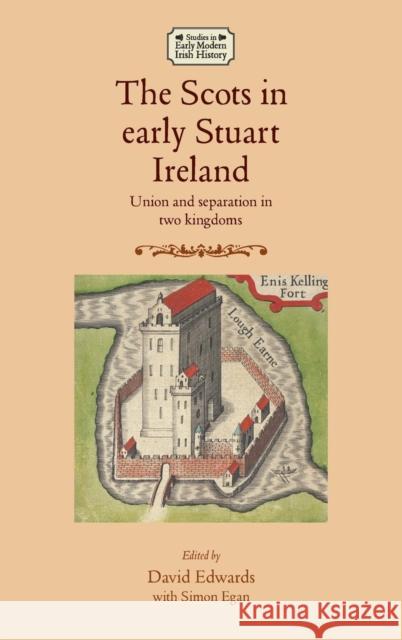The Scots in Early Stuart Ireland: Union and Separation in Two Kingdoms » książka
The Scots in Early Stuart Ireland: Union and Separation in Two Kingdoms
ISBN-13: 9780719097218 / Angielski / Twarda / 2015 / 296 str.
The Scots in Early Stuart Ireland: Union and Separation in Two Kingdoms
ISBN-13: 9780719097218 / Angielski / Twarda / 2015 / 296 str.
(netto: 441,90 VAT: 5%)
Najniższa cena z 30 dni: 457,38
ok. 30 dni roboczych.
Darmowa dostawa!
Despite growing academic interest in English, Scottish, Irish and Welsh inter-connections sparked by the 'New British History' debate, sixteenth- and seventeenth-century 'British' historiography to date has focused on Anglo-Scottish and Anglo-Irish relations. This book explores Irish-Scottish connections during the period 1603-60 and brings important new perspectives to study of the Early Stuart state. It was chiefly in Ireland that the English and Scots intermingled after 1603, with a variety of consequences, sometimes positive, often negative. An account is provided of Scottish involvement in early-to-mid seventeenth-century Ireland, which was both more and less pervasive than has been generally understood. Increased Irish-Scottish contact was one of the main consequences of the Ulster plantation but this has previously been under-emphasised in accounts of the period. Similarly the Irish religious and political role in western Scotland and the Isles has been mostly underappreciated but both are deliberated. The importance of the Gaelic world in Irish-Scottish connections also receives attention - the Gaelic world played a central role in the transmission of Catholic and Protestant radicalism in Ireland and Scotland, which served as a catalyst to underlying political and ethnic tensions within the British Isles, with revolutionary consequences. This book helps to identify some of the limits of England's Anglicising influence in the northern and western 'British Isles' and the often slight basis on which the Stuart pursuit of a new 'British' state and a new 'British' consciousness operated. With essays written by leading specialist scholars in the period, including Jane Ohlmeyer, this book will be of interest to Post-graduates and final-year undergraduates interested in British, Irish and early modern history.











